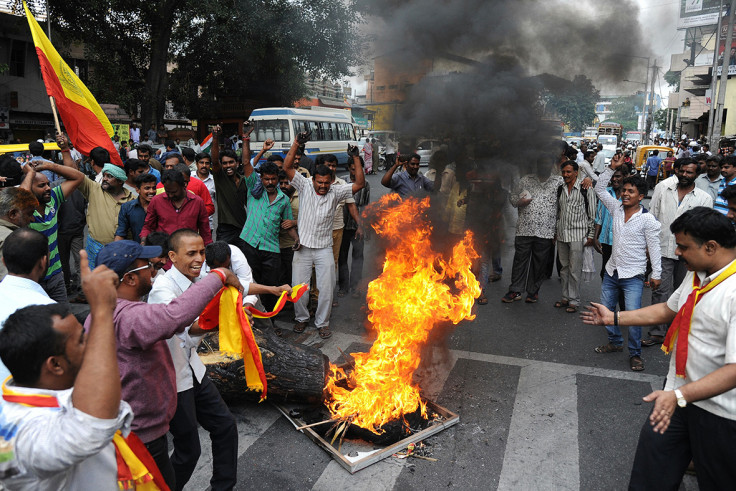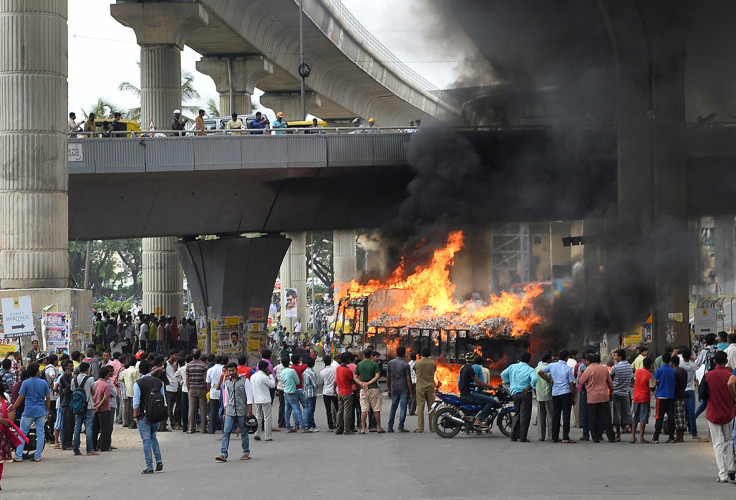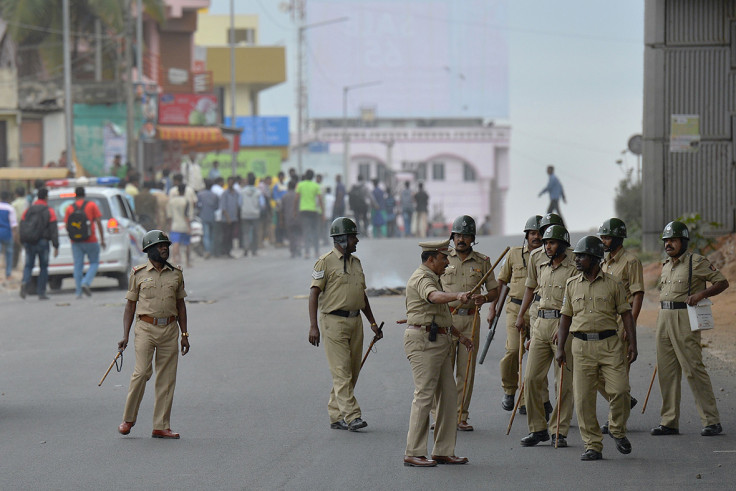India's Silicon Valley Bengaluru crippled by water riots
Karnataka and Tamil Nadu states locked in Supreme Court battle over sharing water from river Cauvery

One person is dead, and shops, schools, and businesses remain shut in India's Silicon Valley, Bengaluru, in the Karnataka state. The city has been at a standstill since Monday (12 September) after violent protests erupted in several parts of the city over a century-old dispute pertaining to the Cauvery River with the neighbouring state of Tamil Nadu.
The two southern states, which speak two different languages, have been locked in a legal battle in India's Supreme Court over sharing of water from the river Cauvery, which is the lifeline of both the provinces. Tensions rise almost every year, especially during the summer months when water becomes scarce.
Farmers in Mandya, known as the rice bowl of Karnataka, and in Thanjavur (formerly Tanjore), the river belt region again labelled as the rice bowl of Tamil Nadu, have been at loggerheads over the river water.
The latest upheaval in Karnataka, which has four dams on the Cauvery, stemmed from a verdict of the Supreme Court, which ordered the state to increase the water supply to Tamil Nadu.
The situation worsened when a video of a Tamil Nadu-based boy being thrashed by men from Karnataka went viral on Monday (12 September). Immediately after this, targets belonging to those from Karnataka were attacked in Chennai, the capital of Tamil Nadu.
With the atmosphere already charged in Bengaluru, the attacks led to a fiery backlash with members of right-wing organisations torching several trucks, buses and cars with Tamil Nadu number plates.
At least 45 buses operated by a well-known travel agency known as KPN were burnt when they were parked at a bus station. The highways connecting the two states have been blocked with several vehicles, which bear the registration numbers of Tamil Nadu, were torched.
Security forces opened fire when a mob attempted to set fire to a vehicle killing at least one person and injured four others.

The Karnataka government has imposed a curfew – an exceptional move although not unprecedented – on sensitive areas of Bengaluru until Wednesday (14 September). It's a rare sight to see Bengaluru (formerly Bangalore) roads empty. Under the nose of some 15,000 security forces, an eerie calm prevails in the southern Indian metropolis notorious for its traffic jams.
Metro services in the city remain suspended while bus services have been curtailed. Schools and colleges have declared a holiday while most businesses have either asked their employees to work from their home or declared a holiday.
A fruit vendor, who did not wish to be identified fearing reprisals, told IBTimes UK that several members of the right-wing Karnataka Rakshana Vedike were seen on the streets asking shops and businesses to down shutters.
An employee with an IT company said: "I don't understand the point of paralysing the whole city. The common man is not involved in political decisions but they are the ones most affected by miscreants' actions. The governments should find a solution for the long-term benefit of the people of both the states."
Prime Minister Narendra Modi said in a statement: "Violence cannot provide a solution to any problem. In a democracy, solutions are found through restraint and mutual dialogue. This dispute can only be solved within the legal ambit. Breaking the law is not a viable alternative. The violence and arson seen in the last two days is only causing loss to the poor, and to our nation's property."

© Copyright IBTimes 2025. All rights reserved.





















